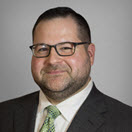The misuse of antibiotics in inpatient and outpatient settings creates a dangerous situation for all Americans. Already, approximately 2 million people in the U.S. become infected with bacteria resistant to all known antibiotic treatments and 23,000 of them die each year.
Why are antibiotics failing us?
Largely, it’s because of inappropriate or unnecessary use. More than 260 million courses of antibiotics are prescribed every year in the U.S. – enough for five out of six Americans to get a round of antibiotics every year. Yet these prescriptions are often unnecessary (used to treat a virus or fungus) or inappropriate (not the right antibiotic to kill a particular bacteria).
In the outpatient setting, over 90 percent of general practitioners feel pressure to prescribe and 70 percent prescribe even when they are unsure what they are treating. In U.S. hospitals, the World Health Organization estimates that 50 percent of all antibiotic courses given are unnecessary or inappropriate.
While people often think of antibiotic resistant superbugs as being a new phenomenon, it’s something predicted by Alexander Fleming, the man who discovered penicillin. In 1945, Fleming warned the public that doctors were abusing penicillin by using it in patients who did not need it.
Fleming told the New York Times, “In such cases, the thoughtless person playing with penicillin is morally responsible for the death of the man who finally succumbs to infection with the penicillin-resistant organism. I hope this evil can be averted.”
Pharmacists can help educate the public about this public health crisis through what’s known as antimicrobial stewardship.
Building antimicrobial stewardship
Antimicrobial stewardship is defined as using the correct drug to treat a specific type of infection and specific type of bacteria, given in the correct dose via the most appropriate route, which may be oral or injection, for the shortest time possible to be effective.
There are many steps the public can take to support this stewardship. These steps include:
- Don’t pressure your doctor to prescribe a course of antibiotic unless a lab test has confirmed a bacterial infection.
- If you do need an antibiotic, ask your provider for the shortest course possible to treat your infection.
- Consider whether self-limiting infections, such as ear infections or bronchitis, can be fought off with rest and nutrition rather than antibiotics.
- Get used to waiting to receive a prescription until lab results have determined if you have a bacterial infection and what type it is.
- Become accustomed to hearing from your doctor that you need to stop the antibiotic you’re currently taking and start a different, more targeted antibiotic.

Watch the entire TEDx talk here:







